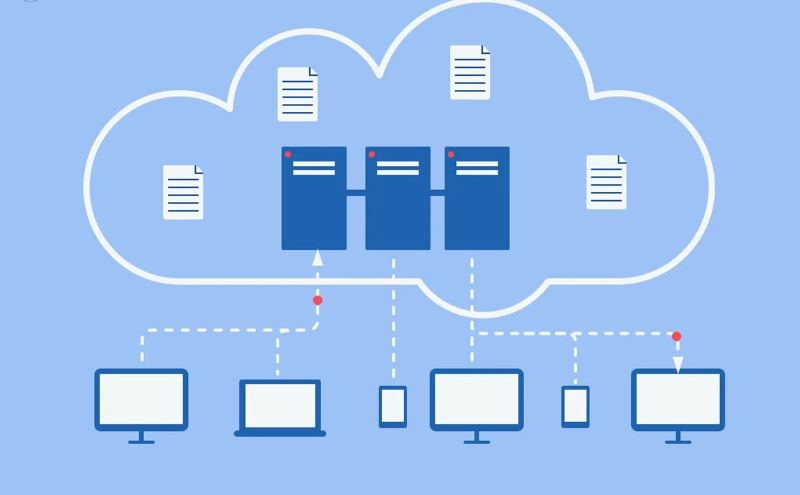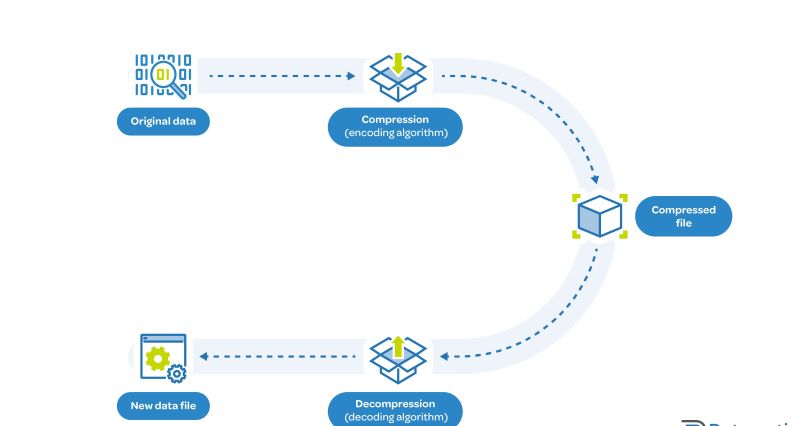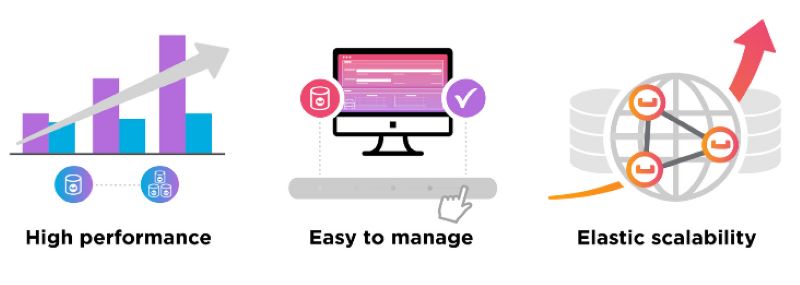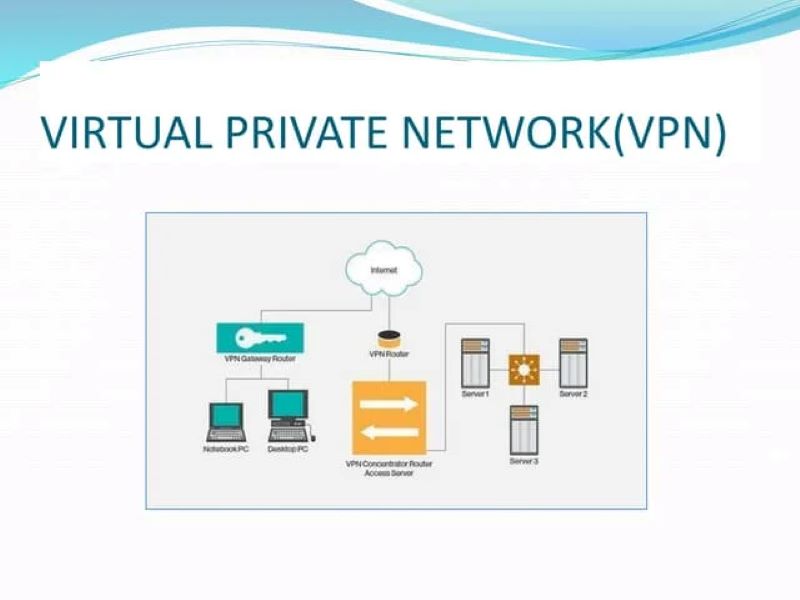In the digital age, bandwidth is not merely a technical term but also a valuable resource, serving as the backbone of all online activities, especially within the blockchain sector. However, a significant amount of bandwidth often goes unused due to various reasons, resulting in resource waste and unnecessary costs. So how can we maximize this unused bandwidth and turn it into a competitive advantage for businesses and individuals?
Table of Contents
This article explores smart solutions for utilizing unused bandwidth, not only saving significant costs but also enhancing network performance. From employing advanced technologies such as data compression, caching, Quality of Service (QoS), and VPNs to integrating blockchain in bandwidth management, we will discover innovative approaches to optimize bandwidth and achieve superior business efficiency.
What is Unused Bandwidth?
In today's interconnected world, bandwidth plays a crucial role as an information superhighway, enabling data to flow between devices and systems. Bandwidth is defined as the maximum amount of data that can be transmitted over a network connection within a specific time unit, typically measured in megabits per second (Mbps) or gigabits per second (Gbps). However, not all available bandwidth is always fully utilized, leading to unused bandwidth.

Causes of Bandwidth Waste
There are several reasons contributing to bandwidth wastage, including:
- Low traffic periods: During low traffic times, bandwidth may not be fully utilized.
- Inefficient applications: Some applications may not be optimized to effectively utilize bandwidth, resulting in higher than necessary bandwidth usage.
- Suboptimal network configurations: Improper network configurations can also lead to bandwidth waste. For instance, improperly setting Quality of Service (QoS) policies may prioritize certain types of traffic over others, limiting bandwidth for some applications.
Solutions for Utilizing Unused Bandwidth
Employ data compression technology
Data compression is a smart solution for effectively utilizing unused bandwidth, particularly beneficial when transmitting large files such as images, videos, and audio. By eliminating redundant data or encoding information more efficiently, this technology significantly reduces file sizes and required bandwidth. For example, a 4K video can be compressed down to 1080p or 720p while maintaining acceptable image quality, thus greatly reducing file size and bandwidth usage.

The biggest advantage of data compression is bandwidth savings, increased download speeds, and reduced storage costs. However, it's important to note that some compression methods may compromise the quality of the original data, and the compression/decompression process may consume processing resources. Nevertheless, with technological advancements, compression algorithms are becoming more efficient, providing high compression ratios without significant impact on data quality.
Utilize caching technology
Cache storage, or caching, is a vital technique for utilizing unused bandwidth and optimizing network performance. By temporarily storing frequently accessed data closer to users on servers, caching minimizes network traffic and speeds up the loading of web pages or applications.

When users access a website, data such as images, videos, CSS files, and JavaScript are temporarily stored in cache memory. The next time users revisit the same website, this data is fetched directly from the cache memory rather than from the original server, significantly improving page loading speeds and reducing load on the original server.
Caching provides numerous benefits for both users and service providers. Users experience faster and smoother web browsing, while service providers can save bandwidth and reduce operational costs. However, careful management is necessary when implementing caching to ensure data consistency and mitigate security issues.
Implement Quality of Service (QoS) technology
Quality of Service (QoS) is a network toolset designed to intelligently manage and distribute bandwidth, ensuring smooth operation of critical applications and services even under network congestion.

QoS functions by classifying and prioritizing different types of network traffic. For instance, in a corporate setting, voice and video traffic for online meetings are prioritized over large file downloads. During network congestion, QoS ensures that priority applications receive sufficient bandwidth allocation, while other applications may have their bandwidth restricted to ensure the overall best user experience.
The primary advantage of QoS is ensuring performance for critical applications, optimizing bandwidth, and enhancing user experience. However, implementing QoS can be complex and should be handled by experienced professionals to avoid negatively impacting other applications.
Leverage Virtual Private Networks (VPNs)
Virtual Private Network (VPN) is a network technology that creates a secure and private connection over a public network, such as the Internet. VPN encrypts your internet traffic and routes it through a remote server, thereby protecting your data and anonymizing your online activities.

VPN operates by establishing an encrypted tunnel between your device and the VPN server. All your internet traffic passes through this tunnel, making it difficult for anyone to track or intercept your data.
The primary advantages of VPN include enhanced online security and privacy, allowing you to access blocked content in certain regions, and sometimes even reducing bandwidth costs. However, VPNs can potentially decrease internet connection speeds and often require subscription fees. Additionally, choosing a reputable VPN provider is crucial to ensure the safety and security of your personal information.
Apply blockchain technology to utilize unused bandwidth
Blockchain technology, renowned for its applications in cryptocurrencies, is opening up new possibilities for utilizing unused bandwidth. By creating a decentralized network, blockchain enables users to share their spare bandwidth securely and transparently with others.
Projects like Mysterium Network and DENT Wireless are pioneering platforms for bandwidth sharing based on blockchain. Users can install these platforms' applications on their devices to share unused bandwidth, which can then be sold to individuals needing secure, private internet access or to overcome geographical restrictions. All transactions are recorded on the blockchain, ensuring transparency and immutability.

Blockchain not only maximizes the utilization of unused bandwidth but also brings numerous other benefits. Users can earn money by sharing their bandwidth, while buyers can access the internet at lower costs. Additionally, blockchain provides an additional layer of security for data transmission and protects user identities.
Although blockchain technology in bandwidth sharing is still developing and faces challenges, its potential is undeniable. With ongoing technological advancements, blockchain promises to become a significant solution for leveraging unused bandwidth, creating a decentralized and transparent bandwidth market that benefits both users and providers.
Benefits of Utilizing Unused Bandwidth
Optimizing and utilizing unused bandwidth is not just a technical solution but also brings significant economic benefits and enhanced user experiences for both businesses and individuals.
Cost Savings
Bandwidth typically comes with costs, especially for businesses using multiple online services. By leveraging unused bandwidth, businesses can reduce the need to upgrade bandwidth packages, thereby saving considerable costs. Moreover, optimizing bandwidth also helps reduce server load, minimizing maintenance and operational expenses.
Improving Network Performance
Unused bandwidth is like a wide, empty highway. Effectively utilizing this bandwidth can accelerate data transmission speeds, reduce latency, and significantly improve network performance. This is particularly crucial for bandwidth-intensive applications such as live video streaming, online gaming, and video conferencing.

Enhancing User Experience
No one likes waiting for a website to load or a video to buffer. Utilizing unused bandwidth speeds up page load times, reduces lag, and provides a smoother experience for users. This not only increases customer satisfaction but also helps businesses attract and retain customers more effectively.
Case Study: Successful Implementation of Unused Bandwidth Utilization
Orchid Protocol is a prominent example of leveraging unused bandwidth and revolutionizing online privacy through blockchain technology and decentralized networks. The project has successfully addressed challenges related to online privacy and provided a platform for users to earn income by sharing their excess bandwidth.
Orchid's Solution
- Decentralized Bandwidth Marketplace: Orchid has built a marketplace where users can buy and sell their excess bandwidth using the OXT token. Users can install the Orchid app on their devices to share unused bandwidth and earn income from this activity.
- Decentralized and Secure VPN: Orchid offers a decentralized VPN solution that is log-free and censorship-resistant, protecting users' online privacy. Buyers of bandwidth can use the Orchid app to connect with bandwidth providers and access the internet securely and privately.

Achievements
- Enhanced Online Privacy: Orchid helps users protect their privacy by providing a secure and decentralized VPN environment.
- Utilization of Unused Bandwidth: The project creates a marketplace for users to share excess bandwidth and earn income from this activity.
- Cost Savings on Bandwidth: Users can access the internet at lower costs compared to traditional VPN services.
- Building a Strong Community: Orchid has attracted a large community of developers, users, and bandwidth providers, collaborating to build a decentralized and secure internet network.
Lessons Learned
Orchid Protocol's success demonstrates that leveraging unused bandwidth not only provides economic benefits but also addresses important social issues such as online privacy. By applying blockchain technology and decentralized networks, Orchid has created a new business model, contributing to the development of a more open and free internet.
Utilizing unused bandwidth is not just a technical solution but also a smart business strategy, delivering benefits in terms of cost, performance, and user experience. With diverse solutions like data compression, caching, QoS, and VPN, optimizing unused bandwidth has never been easier and more effective.
By implementing these solutions, both businesses and individuals can significantly save costs while enhancing network performance, ensuring smoother and more stable online experiences. In the ever-evolving landscape of technology, maximizing the use of bandwidth resources is key to maintaining competitiveness and success in the digital age. Follow U2U Network to update the latest information about Blockchain





.png)
